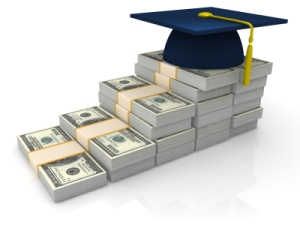It’s not a mystery that college is expensive in the United States; and that private institutions are priced higher than all others. But have you ever paid attention to the way prices of private institutions rise? It seems as though when one university raises their price, the others follow suit. In many ways, these colleges operate like cartel oligopolies. Characteristics of cartels include: monopolistic behavior and maximizing on profit through implicit collusion; and when you think about it, that is exactly what private colleges do.
In today’s economy, students and their families look for the best education. Measured by test scores, gpa etc. students pray and hope they will be accepted into the selective private institution of their choice. In reality, they are smart to do so since the economic return on private institutions is large. The problem is that private institutions know this as well. The demand for these schools is so high that top institutions have their hand choice of kids and also the ability to increase their sticker price whenever they choose. In this way, private institutions behave exactly like a drug cartel would: capitalizing on their demand and maximizing profit.
However, not everyone shares this mindset. Many rationalize the increased sticker price from private colleges and argue that they are valid. Unlike state colleges and universities, private institutions do not receive tax dollars or federal funding. Private colleges keep costs rising in order to fund the difference. Others argue that today, kids have expectations higher than they did in the past. Things that were once luxuries like Internet and air conditioning are now requirements and colleges must update in order to continue attracting prospective students. There are even some economists who argue the most logical argument of them all: inflation. Universities, like all business, are subject to inflation. Food, water, fuel etc. increase for them like it does for everyone else; therefore tuition must rise. Although these arguments make sense, none of them account for why there is never a decrease in tuition price.
I believe that for private institutions, it is easy to convince the board of trustees, etc. to raise prices especially to account for inflation, external sources etc. However, trying to convince all decision-making parties to lower prices based on economic shifts is not so easy. Why lower tuition costs when there are thousands of applicants prying at the door for a spot in that private institution? The reality is: despite economic issues and causes for tuition raises, the rising demand for college has tolerated increasing prices and that exceed economic forces. Private colleges and universities continue to behave like a cartel simply because they can. If people are willing to pay it, then why not continue to use implicit collusion to drive funds? If people continue to allow these tuition raises then they cannot expect a change in tuition anytime soon. The future availability of the “American Dream” is not the fault of the Universities. They are a business, and just like any other business, they capitalize on profit. It is however, the fault of those who continue to support this cartel-like business.

